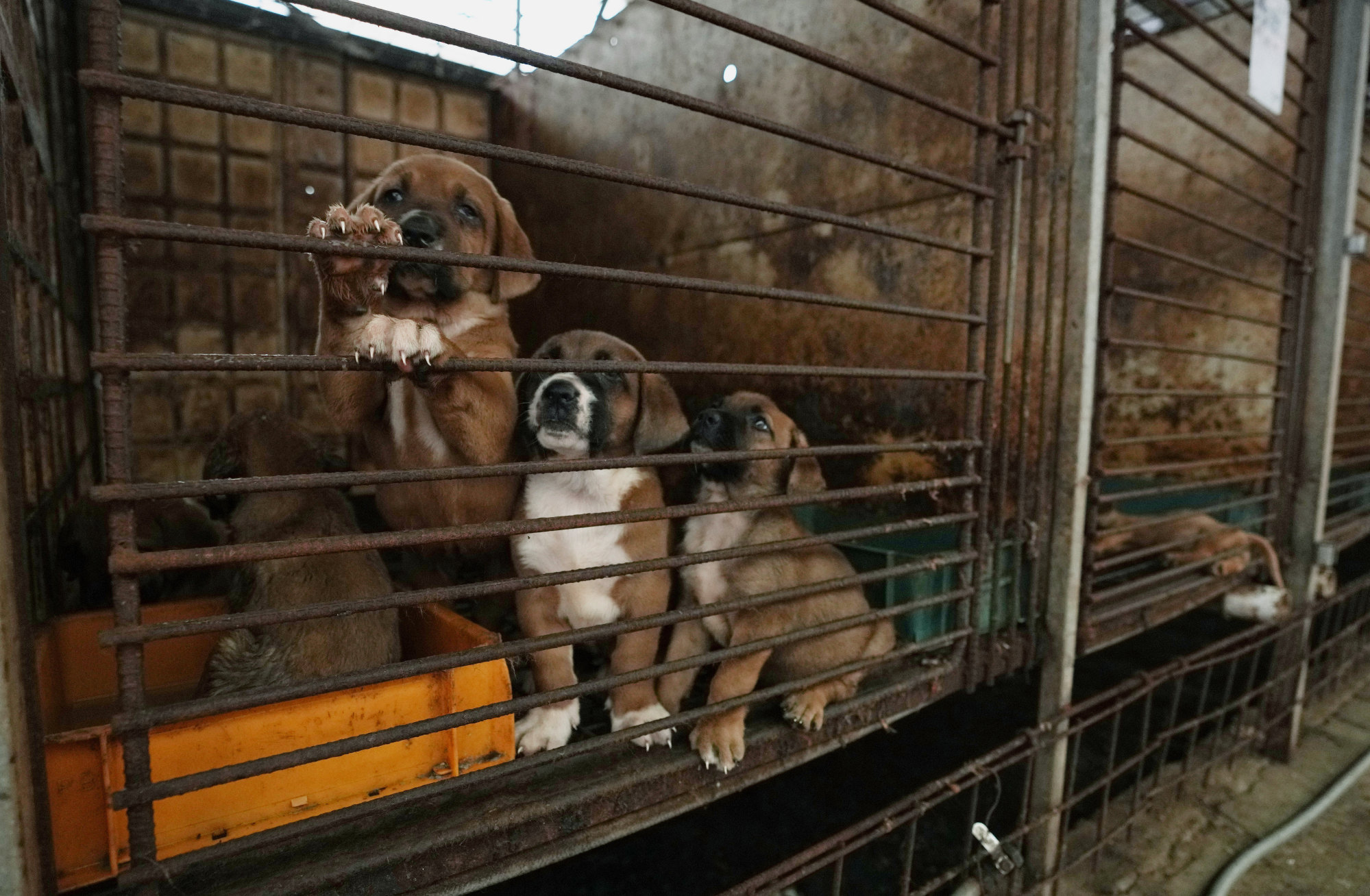South Korea’s Yoon wants to name an anti-dog meat law after his wife. Some aren’t pleased

[ad_1]
Park Dae-chul, a People Power Party (PPP) lawmaker who has rallied behind the Kim Keon-hee Bill, said internal disquiet would not stop efforts to pass the law as the conservative party’s position on the issue remained unchanged.
“Now is the time to end the consumption of dogs,” Park wrote on Facebook this week.
The party’s chief policymaker also expressed optimism about clearing the bill with the help of opposition members and pledged to follow a thorough parliamentary review process.

The main opposition Democratic Party, generally at loggerheads with the Yoon administration over key policy matters, said it would back the initiative.
First Lady Kim, a vocal animal welfare advocate, in April pledged to end the controversial culture within the tenure of the current government.
She faced backlash from a group representing dog-meat farm owners, which accused her of indulging in political activity that exceeded her authority and trying to take “people’s rights to eat away”.
Yoon earlier said eating dogs was a matter of personal choice, but later changed his stance and promised to work to ban dog-meat consumption during last year’s election campaigning.
Farm owners attack South Korean first lady for trying to ‘end’ dog meat eating
Farm owners attack South Korean first lady for trying to ‘end’ dog meat eating
Yoo Seong-min, a former PPP floor leader, rebuked his colleagues for fawning over the power couple and promoting a “liberal democracy” as a “communist totalitarian” state.
“Those (PPP lawmakers) who have treated the president like a god and flattered him in a genius manner, are now flattering even the first lady,” Yoo said in a Facebook post, adding he had never seen a piece of legislation named after a first lady.
Hong Moon-pyo, another legislator, also expressed his displeasure with the party’s move, calling it as “not pure”, The Korea Times reported.
Lawmaker Park argued the bill’s title was an “innovative” way to amplify its goal and other countries had also adopted the approach in the past, saying the United States’ 1965 “Lady Bird’s Bill” – aimed at controlling outdoor advertising – was named after former president Lyndon Johnson’s wife.

South Koreans on social media supported the legislation, saying eating dogs was a “big blow” to the country’s image. But they questioned the logic behind naming the proposal, as many groups and citizens had long pushed for a ban on dog meat consumption.
“Eating dogs is barbaric. I will support and cheer you on. It’s time to change,” a user wrote in response to Park’s post.
Said another: “Don’t add Kim Keon-hee’s name to the bill, which was the result of years-long campaigning by animal rights organisations. Let’s really not do that. Is this North Korea?”
South Korea to treat Cambodian boy at core of first lady’s ‘poverty porn’ row
South Korea to treat Cambodian boy at core of first lady’s ‘poverty porn’ row
Others urged the ruling party lawmakers to consider the livelihoods of people working in the dog meat industry than proving their loyalty to the president.
“Enacting laws and making the trade illegal is not the only way to go. Incentives are needed to encourage people to quit the sector,” a user said.
Dog meat is neither legal nor explicitly banned in South Korea, where restaurants selling the delicacy are dwindling as younger people find dog meat a less attractive dining option.
A survey commissioned by animal welfare group Aware in 2021 said 78 per cent of respondents believed the production and sale of dog and cat meat should be prohibited, and 49 per cent supported a consumption ban.
[ad_2]
Source link





